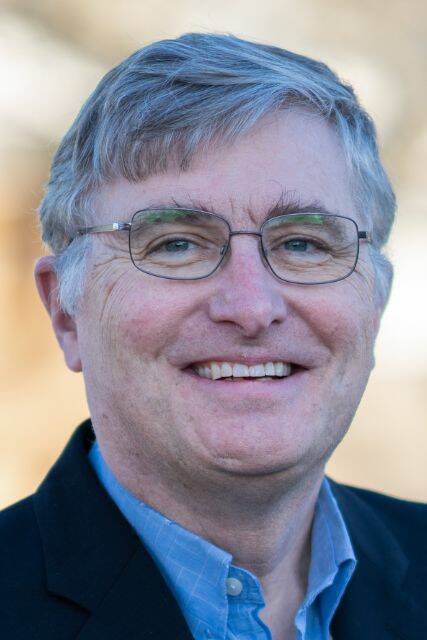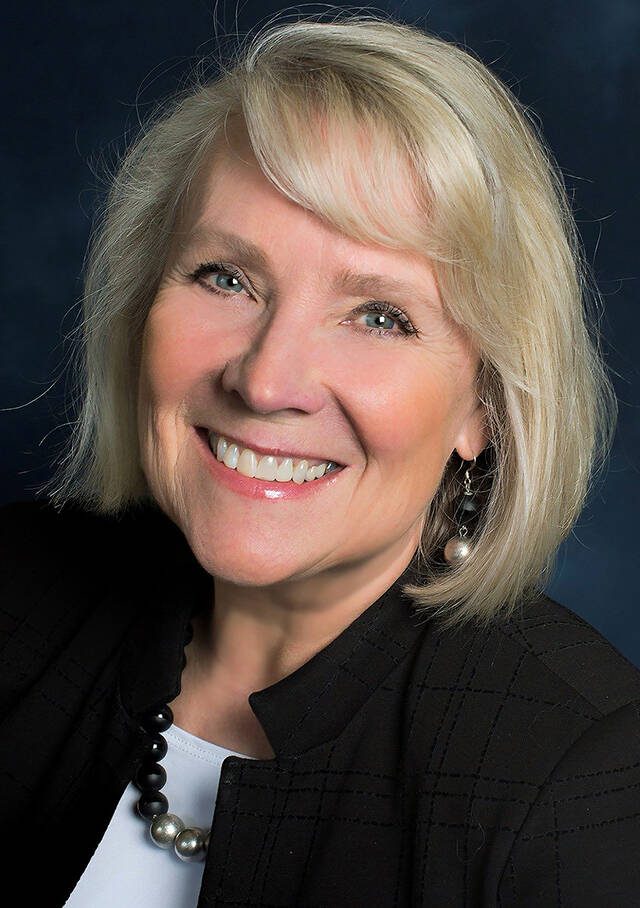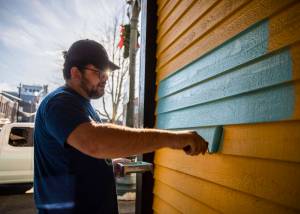Everett council candidates differ on solutions to homelessness, safety
Published 1:30 am Wednesday, November 1, 2023






EVERETT — Everett City Council candidates can agree homelessness and public safety are two of the biggest issues facing the city.
Where they differ is how to address them.
Scott Bader believes strongly in the role of police to get people off the street. He served on the council for almost a decade before declining to run for re-election in 2021. His opponent, Demi Chatters, says it will take more than police to solve the issue.
The pair are running to fill the seat vacated by Council President Brenda Stonecipher, who is stepping down from the role after two decades on the council.
Bader and Chatters are not far apart when it comes to direct campaign contributions. He has raised over $63,000. She has raised more than $52,500.
Bader, however, has received more than $82,000 in outside spending from the Master Builders Association of King and Snohomish Counties, all spent on mail and digital ads.
In the August primary, Bader got about 42% of the vote. Chatters got about 35%.
Judy Tuohy, who has been on the City Council since 2014, is running against political newcomer Judith Martinez. Tuohy has received about $60,0000 in campaign contributions. Martinez got around $32,000.
Tuohy led the primary with about 55% of the vote. Martinez received about 30%.
The candidates are competing for two at-large seats, each with a four year term. Come January, council members’ salaries will be raised to $32,388 annually.
Position 6
Scott Bader
For Scott Bader, 59, the issue facing Everett “far above anything else” is public safety.
To help solve that issue, Bader thinks the council should ensure first responders have competitive wages and access to equipment and should voice support for those workers “every chance we get.”
He would also give police and social workers legal tools to tell people on the street: “You can’t live this way, we need to get you in treatment,” he said. Everett could look to other cities to see examples of what works and what doesn’t, Bader suggested, pointing to anti-public camping laws in Auburn and Kent as examples.
To help people living on the street, Bader said, “it isn’t just enough to provide them a place to live.” Rather, “we’ve got to provide that assertiveness” to keep them from using drugs, he said.
In 2021, Bader was a proponent of Everett’s first “no sit, no lie” law prohibiting sitting or lying down in an area around the Everett Gospel Mission.
He said he has heard from first responders that there’s an anxiety about whether some on the City Council are behind them.
“Why I wanted to run is to make sure we have someone to replace council member Stonecipher,” who “our public safety folks know is going to support them,” he said.
Other priorities for Bader include ensuring the city’s infrastructure is in good condition and dealing with the projected budget deficit, which he said will likely involve putting higher sales taxes for certain services on the ballot.
Like Chatters, Bader wants to increase housing density creatively, without damaging “that sense of neighborliness and neighborhoods.”
That could mean looking at design standards to make sure multifamily homes and apartment buildings have parking attached and creating more parks.
The master builders association cited public safety and Bader’s “strong record on housing” to explain the large amounts of outside spending for him.
Bader is the director of parish financial services for the Catholic Church Archdiocese of Seattle. He is endorsed by Mayor Cassie Franklin, the Everett Police Officers Association and the Snohomish County Business Coalition, among others.
Demi Chatters
Demi Chatters, 48, believes addressing the homelessness crisis in Everett should go beyond a police response.
That’s not to say she thinks giving police resources isn’t important.
“But we can’t just lay at their feet this issue and say, ‘Hey, you guys fix it,’” she said, “because it’s really a function of a lack of planning to create space for our community over time.”
She looks to the countywide housing assessment completed this year, which showed Everett alone will need 38,000 more housing units by 2044 to keep pace with population growth. Chatters called it a “state of emergency.” She wants to ensure the city’s land use and zoning policies allow for “gentle density in our neighborhood spaces.”
When people hear density, they may imagine developers dropping giant apartment complexes into residential neighborhoods. But Chatters stressed there are ways to increase density while respecting neighborhood character, pointing to the recent accessory dwelling unit ordinance making it easier to build mother-in-law units, as an example.
“I have four kids, and at this point, they’re looking around and they’re like, ‘I’ll never be able to afford a home here,’” she said. “When I talk to young folks in their 20s and 30s, that is a major concern.”
Greater density could also help the city’s looming budget deficit, she suggested, by increasing the number of taxable properties.
When it comes to the deficit, she said, council members have a responsibility to talk to people about what it means and what services are most important to them.
Chatters, who is the chair of the city planning commission, disagrees with the City Council’s expansion of the “no sit, no lie” ordinance and with the mayor’s veto of a project labor agreement ordinance last December. The ordinance would have required an agreement between the city and construction unions for public works projects costing more than $5 million.
“The wages that folks earn, especially when we’re talking about everyday working class folks, those wages go directly back into the economy,” she said.
She also emphasized the importance of considering climate impact in public policy, including incentivizing environmentally friendly building practices and ensuring access to green spaces.
Chatters is the director of operations at a Seattle law firm. She is endorsed by Planned Parenthood, the Snohomish County Democrats, the Snohomish and Island County Labor Council and County Executive Dave Somers, among others.
Position 7
Judith Martinez
Judith Martinez, 40, feels the City Council was “lacking that empathy” when it voted for the expansion of the “no sit, no lie” law in spring. The expanded ordinance gives the mayor the authority to designate new “no sit” zones elsewhere in the city, beyond the original zone around the Everett Gospel Mission.
“My entire life, my family struggled with being able to afford a good safe place to live based on my parents’ income,” she said.
That experience informs her stance on “no sit” and on the Norton playfield project, Housing Hope’s proposal for a supportive housing complex along Norton Avenue. In 2020, the council voted down a request to change the site’s zoning designations, effectively scuppering the project. Martinez called that decision “heartbreaking.”
She also supported the original project labor agreement ordinance vetoed by the mayor last December.
“The city needs more union input,” said Martinez, a member of the International Brotherhood of Electrical Workers Local 77.
The city can address the homelessness problem by getting resources to people on the street and supporting different forms of housing, like the Norton project, Martinez said.
“People are afraid of the unknown,” she said, noting what gets lost in that fear is “that these are human beings.”
Martinez is a public safety specialist with the Snohomish County Public Utilities District.
“I just want to do as much as I possibly can to help everyone around me,” she said, “whether it’s my union siblings, my coworkers, or my community, my neighbors.”
She is endorsed by Snohomish County Council member Megan Dunn, the Snohomish and Island County Labor Council, the Northwest Washington Building and Construction Trades Council and others.
Judy Tuohy
Judy Tuohy, 69, argues the lack of affordable housing is an even bigger problem than many may think.
“We see the unsheltered population, but we don’t see the people that can’t afford to live in their apartment” and “have a friend or a family member that they can go stay with,” she said.
The city needs to move quickly to work with developers to create more affordable housing, she said, by offering them incentives and providing funding for projects from nonprofits like Housing Hope.
She noted city staff are working out how to best increase density in the latest update to the comprehensive plan.
As for helping people on the street now, Tuohy mentioned the city’s embedded social workers and projects like the proposed day shelter in the former Our Lady of Perpetual Help Catholic Church building and the city’s Pallet shelter sites.
Regarding public safety, understaffing at the police department is a problem, Tuohy said. The city can combat this by providing incentives for new hires and for officers on the verge of retirement to stay on. Currently, the police department offers hiring bonuses of up to $30,000 for experienced officers.
Tuohy was among those who voted for the expanded “no sit, no lie” ordinance in May. Proponents of the expanded “no sit” law, which passed 4-3, say it protects public safety. Tuohy said she hasn’t yet heard whether the law has been working as she had hoped.
Getting Everett residents into higher-paying jobs is also an important issue, she said, though one that is less of a focus right now, as affordable housing is the top priority.
While she said she hasn’t yet had the chance to delve fully into how the City Council can help raise wages, Tuohy named the upcoming project labor agreement ordinance as one way that can happen.
Tuohy was on the task force that worked on a project labor agreement ordinance as an alternative to the one vetoed in December. The latest ordinance was pulled from a City Council agenda in September for further review after negative feedback from unions.
“I’m certainly willing to try to figure it out and make it work,” she said. “It’s a very important document.”
Tuohy is the executive director of the Schack Art Center. She is endorsed by Snohomish County Executive Somers, Everett City Council President Stonecipher, the Tulalip Tribes and Pro-Choice Washington, among others.
Ballots are due Nov. 7.
Sophia Gates: 425-339-3035; sophia.gates@heraldnet.com; Twitter: @SophiaSGates.










